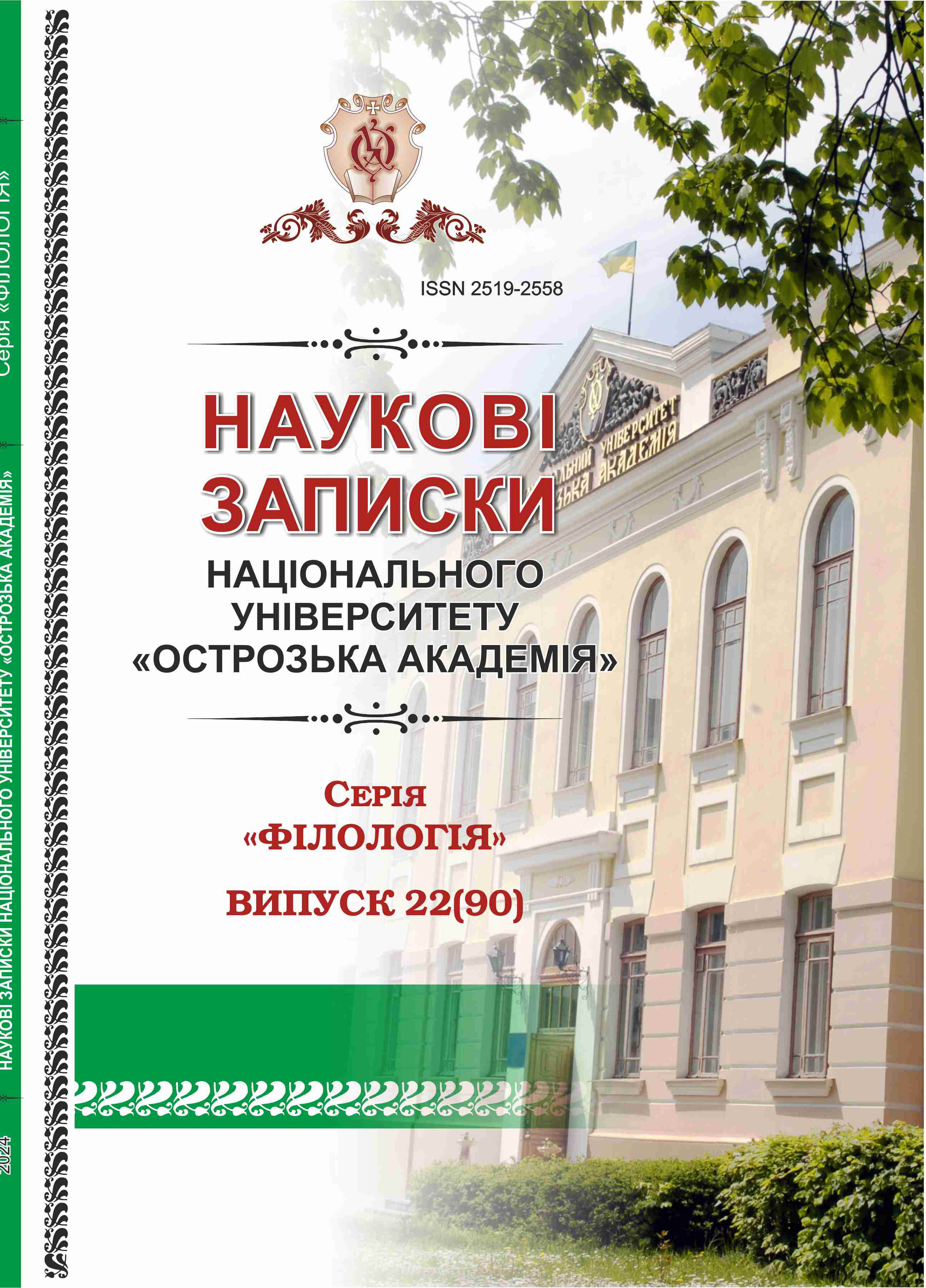EUPHEMISMS AND DYSPHEMISMS IN ARTISTIC DISCOURSE (BASED ON THE ELIZABETH GILBERT’S NOVELS “CITY OF GIRLS” AND “THE SIGNATURE OF ALL THINGS”)
Keywords:
euphemism, dysphemism, linguistic pragmatics, comparative analysis, speech act, pragmatic principles of communication, implicatureAbstract
Euphemisms and dysphemisms are secondary nominations with a special pragmatic and emotional-expressive potential. Such features are decisive to consider them within the pragmalinguistic aspect since the traditional view of secondary nominations makes it impossible to take into account all functional features. For the analysis, we have chosen two novels written by the famous American author E. Gilbert – «City of Girls» and «The Signature of All Things». The specificity of the selected works is characterized by the frequent use of vocabulary related to physicality, sex, and death, topics that are often related to taboo. This is crucial in the selection of linguistic nominations, as there is a certain correlation between the existence of taboos and the use of euphemisms and dysphemisms. We analyzed the nominations both in English and in the Ukrainian version to trace the correspondence or discrepancy in the emotional and expressive coloring of secondary nominations in the original language and translated versions.
The pragmalinguistic analysis of linguistic phenomena involves the use of various theories distinguished within the framework of linguistic pragmatics. In the study, we used the approaches to the theory of speech acts by J. Austin, because, in our opinion, it is most appropriate to qualify euphemisms and dysphemisms as speech acts, since they consistently demonstrate the presence of the structure already classical for the theory – locative, illocutionary and perlocutionary acts. It is also worth noting that in the context of euphemism, the key principle is P. Grice’s Cooperative Principle, since violation of its maxims affects the creation of new nominations. In the context of dysphemisms, J. Leach’s Politeness Principle is important.

